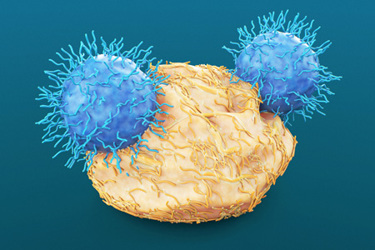Evaluating CAR T-Cell Therapy Vascular Recruitment, Trafficking & Killing Efficacy With Organ-On-A-Chip Technology

In the dynamic landscape of cancer treatment, chimeric antigen receptor (CAR) T cells have emerged as a promising form of immunotherapy, transforming the clinical treatment of hematologic cancers. However, the potential of CAR T-cell therapy remains largely untapped for solid tumors, which account for approximately 90% of cancer cases and fatalities.
The journey for CAR T cells to effectively kill solid tumor cells is long, complicated, and challenging to replicate with conventional cell-based models due to their simplicity. Animal models also fall short as they fail to model human responses to cell therapy due to the inherent differences in vascular and immune system biology between species.
Organ-on-a-Chip technology offers a promising solution as it enables researchers to more accurately recreate the pathophysiology of immune cell function and overcome in vivo challenges. Unlike animal models, OrganChips provide a human-centric, controlled, and consistent platform for modeling CAR T-cell functionality.
As efforts to develop effective CAR T-cell therapies for solid tumors gain momentum, it is of utmost importance for researchers to focus not only on the killing efficacy but also on the ability to overcome the rate-limiting challenges of extravasation from the blood circulation and subsequent tumor infiltration. This Organ-Chip workflow serves as a more human-relevant platform for assessing the trafficking and killing efficiency of immunotherapy as well as the proof-of-concept of immuno-oncology co-therapy.
Get unlimited access to:
Enter your credentials below to log in. Not yet a member of Bioprocess Online? Subscribe today.
